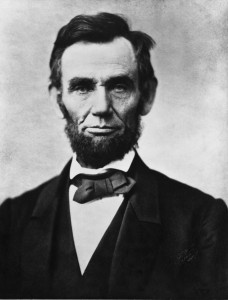After reading the monumental work on George Washington, Sacred Fire, I have turned my attention to the other of the greatest presidents by public reckoning — Abraham Lincoln. In the study I am reading A. Lincoln: A Biography by Ronald C. White, Jr. I will probably make a few posts along the way. My initial impressions of the work are positive. The documentation and detail seems to be adequate and the writing easy to follow. It comes with high marks from several reputable sources.
Here I want to mention what is an anomaly or oddity that I have found in White’s work. On pages 296-97, White summarizes:
“In Ohio, a contentious issue was the Fugitive Slave Act of 1850. The controversy was raised to a fever pitch in the fall of 1858 when a federal marshal arrested John Price, a slave who had lived in Oberlin for some time. Residents of Oberlin stormed the hotel in nearby Wellington where Price was being held, freed him, and took him back to Oberlin, where the president of Oberlin College hid him in his home before friends spirited him away to Canada.” (emphasis added)
What is perplexing is the absence of the name of the president of Oberlin College — none other than Charles Finney, who served as Oberlin’s president from 1851-1866. Throughout the book, White mentions many pastors and preachers, some obscure, who figure into the narrative he is presenting of Lincoln and his times. However, here he fails to mention one of the most famous revivalists of his day, who was also an ardent abolitionist. I wonder why the lack of mention of Finney.



#1 by Rodd Umlauf on January 15, 2013 - 9:58 PM
Quote
I have read much of Charles Finney’s works. In one of the books he writes of how President Lincoln wrote to him, asking him a question regarding the slave issue. Finney wrote back to the President who was wrestling with the issue. The was an exchange of a few letters and Mr. Finney believe that he had convinced the President.
We know the outcome….